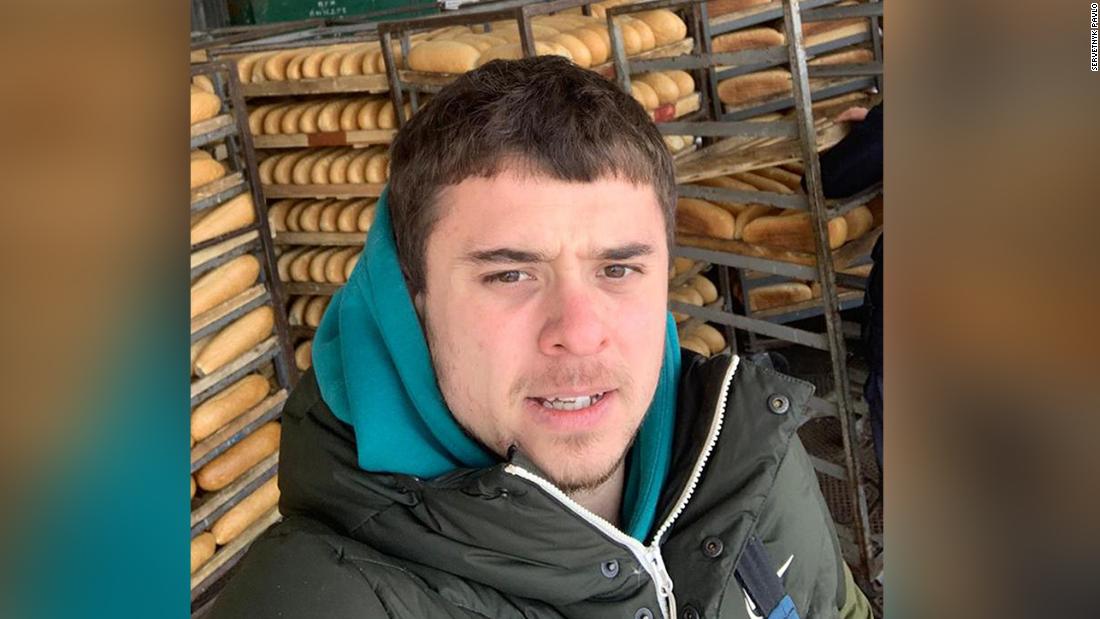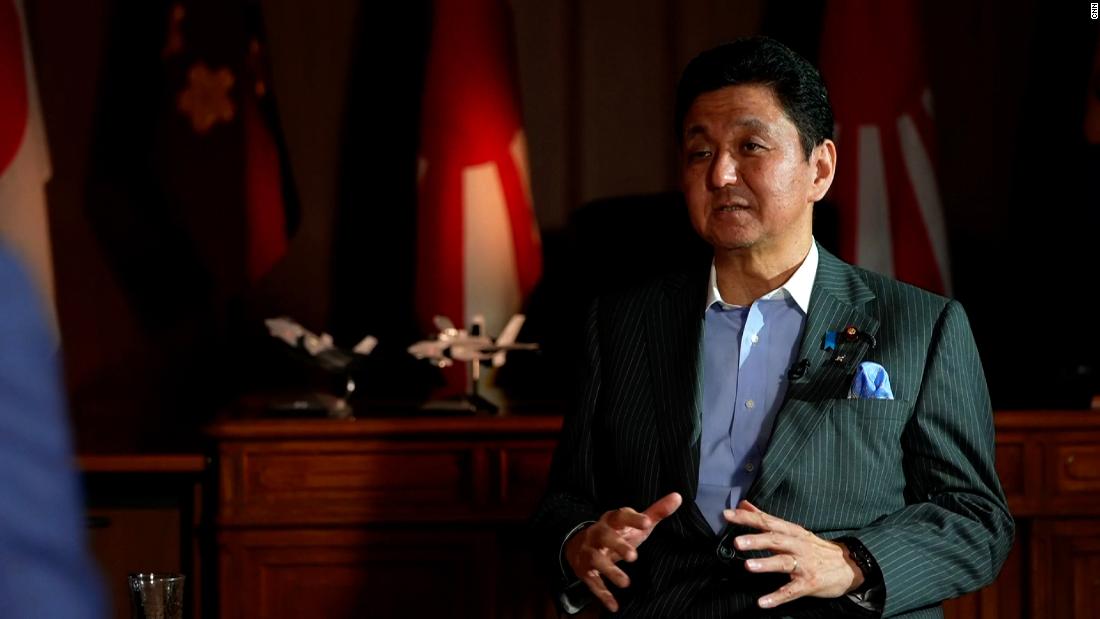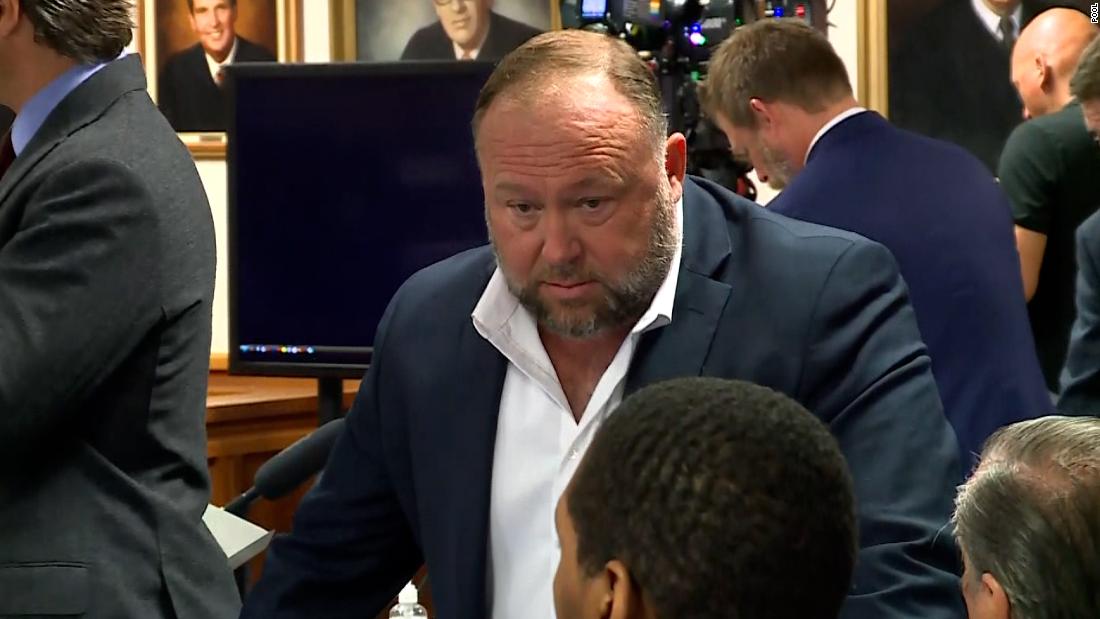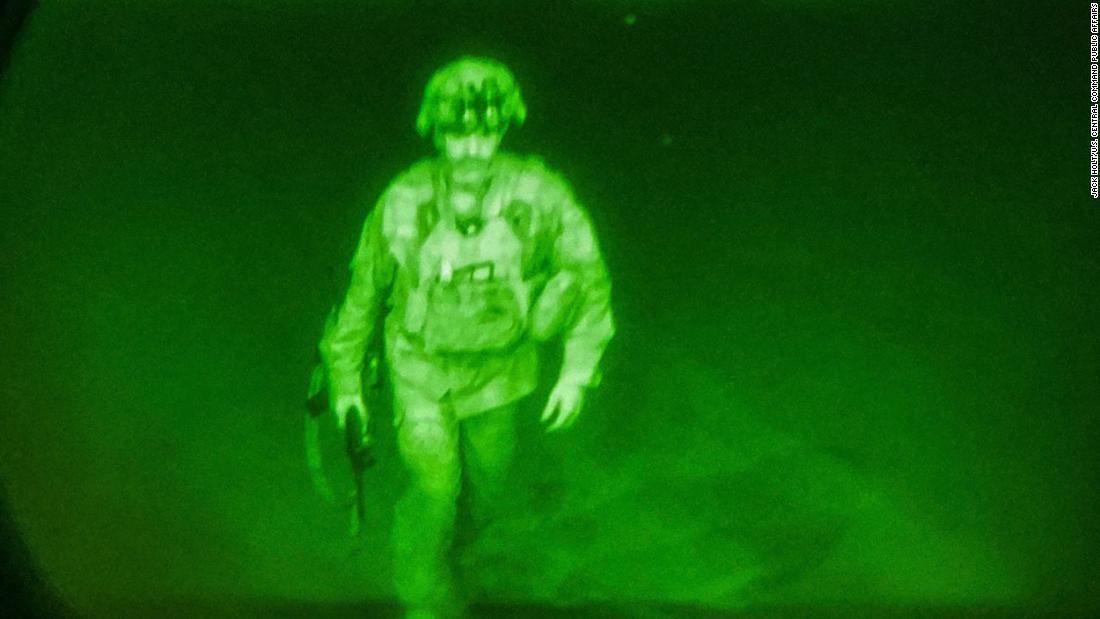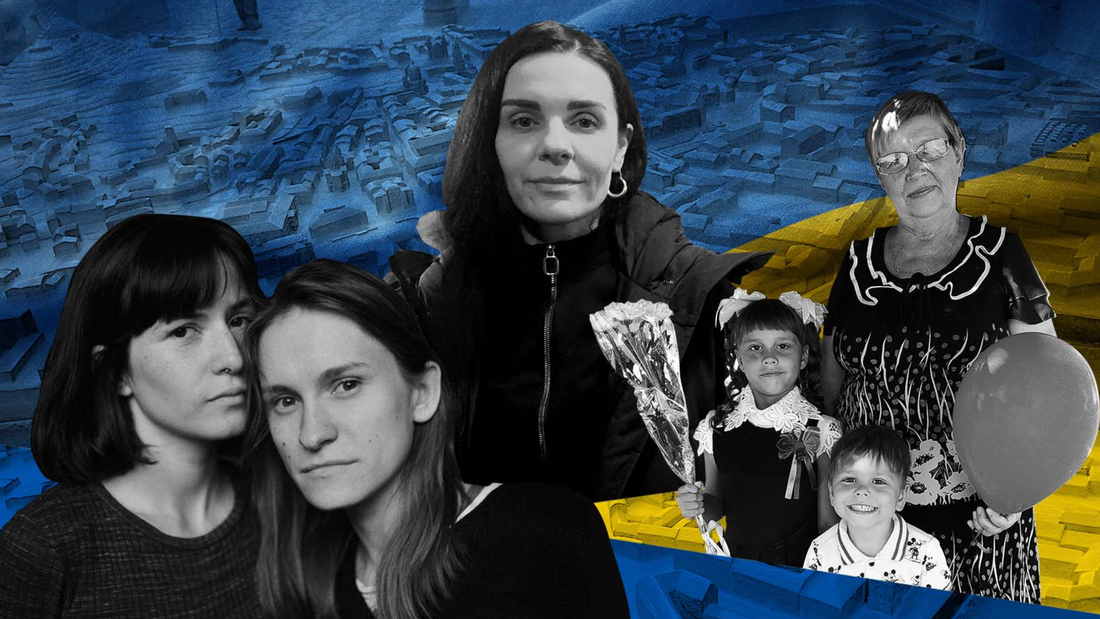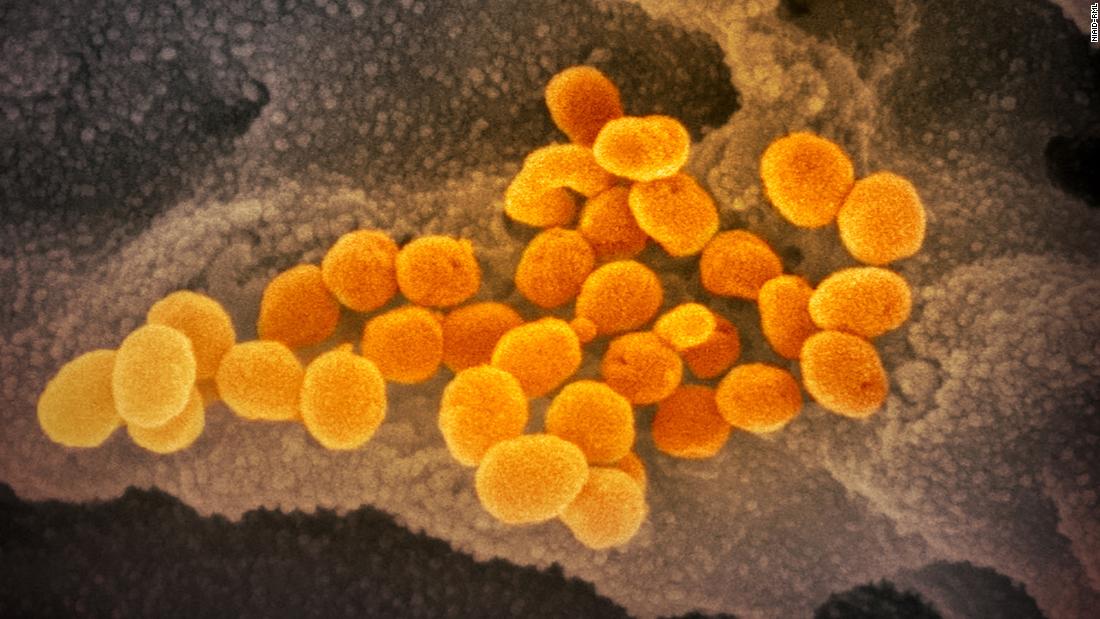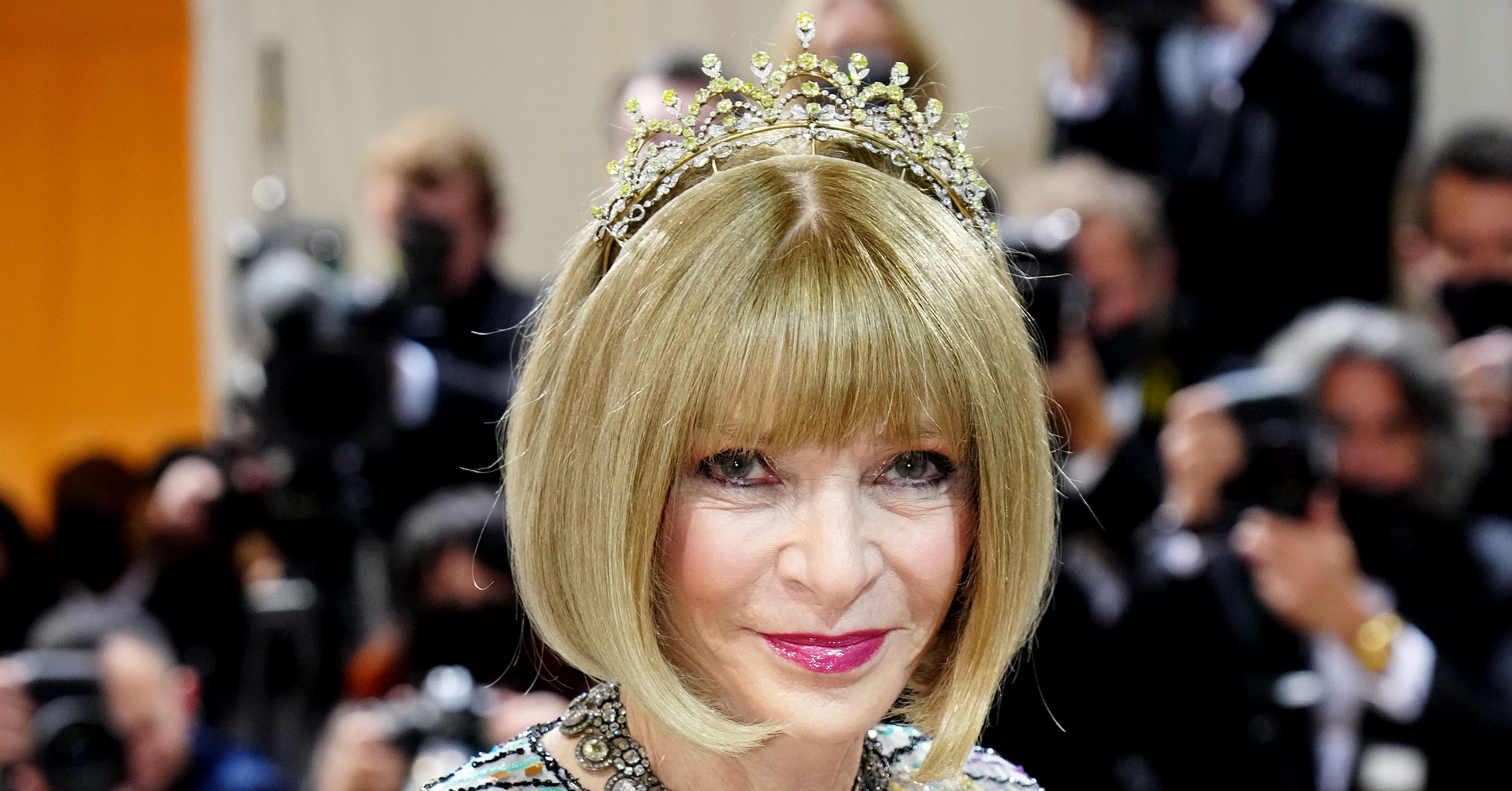Djokovic's visa has been canceled again
1 min agoDjokovic visa decision comes as Australia battles Covid outbreakPeople queue at a walk-in Covid-19 testing site in Melbourne on January 5. (Joel Carrett/AAP Image/AP)Novak Djokovic's immigration case has been closely watched across Australia, with people divided — and many upset at his release from detention on Monday.A small but vocal group of anti-vaxxers see Djokovic as a hero who took on the state — and won. But for many Australians, the problem boiled down to whether Djokovic considered himself above the country's pandemic rules at a time when Covid-19 case numbers are soaring.The state of Victoria, of which Australian Open host city Melbourne is the capital, reported a record number of coronavirus hospitalizations on Friday — just three days before the tennis tournament begins.The state reported more then 34,000 new Covid-19 infections and 18 deaths, with 976 hospitalizations, according to the state's deputy premier James Merlino.New South Wales also reported 29 Covid-19 deaths on Friday — a record for Australia's most populous state.NSW authorities said they expect pressure on the health care system to continue for at least a few more weeks before cases plateau. Border closures and lockdowns: For millions of Australians, memories of uncompromising border closures and other pandemic restrictions remain fresh — making Djokovic's case particularly controversial.Australia was one of the first countries to close international borders in March 2020. For almost two years, tens of thousands of citizens were prevented from coming home. State borders also periodically closed and reopened, preventing families from seeing each other without a government-approved reason.Some now question why special privileges are extended to athletes who travel the world when others only recently struggled to cross a state border to see a loved one.1 min agoDjokovic could appeal the visa decision again — but would face a tough battle, lawyers sayNovak Djokovic practiced at Melbourne Park on Friday before his visa was canceled for a second time. (Darrian Traynor/Getty Images)Novak Djokovic's Australia visa was today canceled for a second time — throwing his participation in the Australian Open into question once more and potentially sparking another legal standoff. Here's what this means and what could happen next, according to legal experts.Could Djokovic appeal again? Yes — the tennis star could request a temporary injunction from the judge, said Justin Quill, a partner with an Australian law firm in Melbourne. During that extra time, he could stay in the country and appeal the decision. But "you can't just appeal because you want to appeal," Quill added — Djokovic would have to show the judge he has valid grounds to protest the decision.Can Djokovic play in the tournament during legal proceedings? It's not clear yet — the Australian Open starts Monday, with Djokovic drawn against fellow Serb Miomir Kecmanovic in a first round match that now seems in doubt.What options does Djokovic have? Maria Jockel, an immigration law specialist at BDO Australia, told CNN Djokovic's lawyers now have 28 days to make representations to the immigration minister, who could then choose to reinstate the visa.During that time, Djokovic might be placed in detention again — unless the minister grants him a bridging visa, which could allow him to play in the Open while waiting for the decision or making arrangements to leave Australia, Jockel said.Djokovic's lawyers could also go to court — but they would face a difficult legal battle, especially given his admission earlier this week that false information was included on his travel declaration, Jockel said. The declaration stated he had not traveled in the 14 days prior to arriving in Melbourne — but photos taken during that period appear to show him in both Spain and Serbia.In a statement on Wednesday, Djokovic called it a "human error."28 min agoREAD: The immigration minister's full statement on revoking Djokovic's visaNovak Djokovic of Serbia attends a practice session ahead of the Australian Open tennis tournament in Melbourne on January 14, 2022. (Martin Keep/AFP/Getty Images)Australian Immigration Minister Alex Hawke said in a statement Friday he would use his personal power to revoke Novak Djokovic's visa for a second time. Read the full statement:"Today I exercised my power under section 133C(3) of the Migration Act to cancel the visa held by Mr Novak Djokovic on health and good order grounds, on the basis that it was in the public interest to do so."This decision followed orders by the Federal Circuit and Family Court on 10 January 2022, quashing a prior cancellation decision on procedural fairness grounds."In making this decision, I carefully considered information provided to me by the Department of Home Affairs, the Australian Border Force and Mr Djokovic."The Morrison Government is firmly committed to protecting Australia’s borders, particularly in relation to the COVID-19 pand
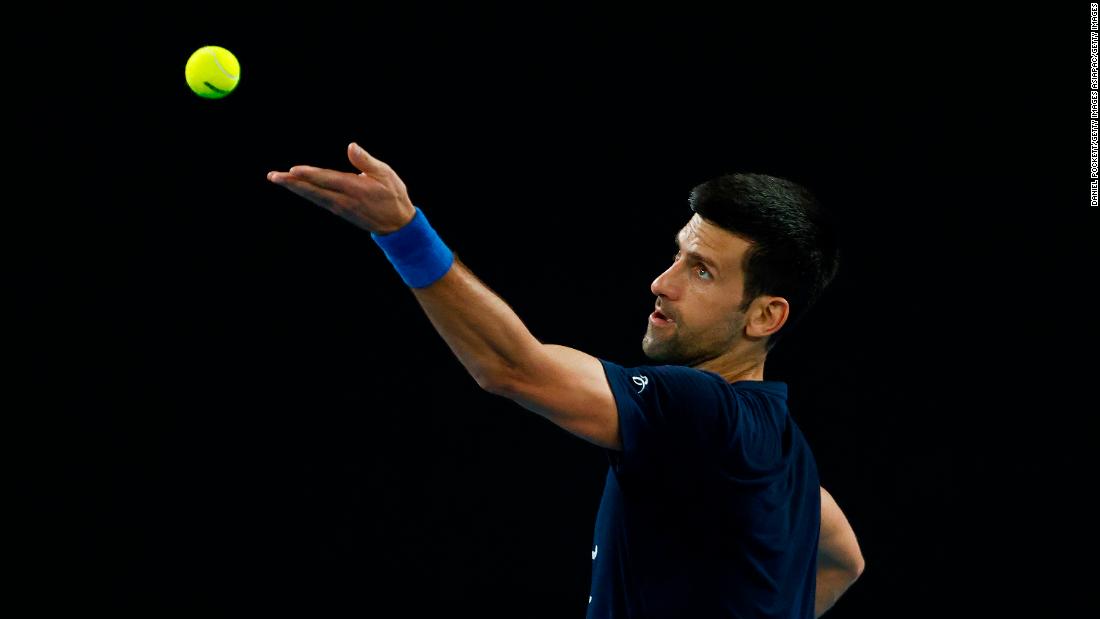
Djokovic visa decision comes as Australia battles Covid outbreak
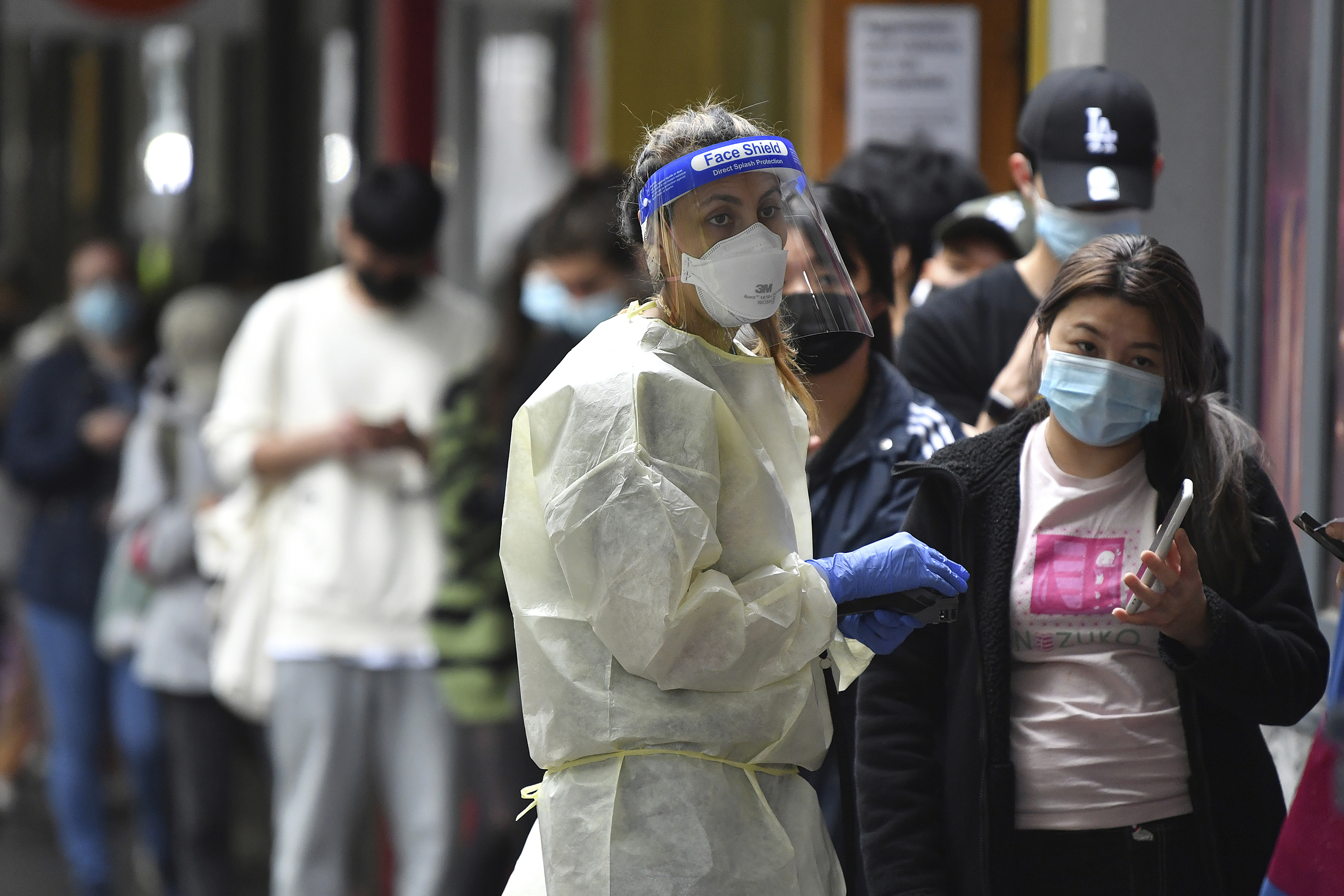
Novak Djokovic's immigration case has been closely watched across Australia, with people divided — and many upset at his release from detention on Monday.
A small but vocal group of anti-vaxxers see Djokovic as a hero who took on the state — and won. But for many Australians, the problem boiled down to whether Djokovic considered himself above the country's pandemic rules at a time when Covid-19 case numbers are soaring.
The state of Victoria, of which Australian Open host city Melbourne is the capital, reported a record number of coronavirus hospitalizations on Friday — just three days before the tennis tournament begins.
The state reported more then 34,000 new Covid-19 infections and 18 deaths, with 976 hospitalizations, according to the state's deputy premier James Merlino.
New South Wales also reported 29 Covid-19 deaths on Friday — a record for Australia's most populous state.
NSW authorities said they expect pressure on the health care system to continue for at least a few more weeks before cases plateau.
Border closures and lockdowns: For millions of Australians, memories of uncompromising border closures and other pandemic restrictions remain fresh — making Djokovic's case particularly controversial.
Australia was one of the first countries to close international borders in March 2020. For almost two years, tens of thousands of citizens were prevented from coming home. State borders also periodically closed and reopened, preventing families from seeing each other without a government-approved reason.
Some now question why special privileges are extended to athletes who travel the world when others only recently struggled to cross a state border to see a loved one.
Djokovic could appeal the visa decision again — but would face a tough battle, lawyers say
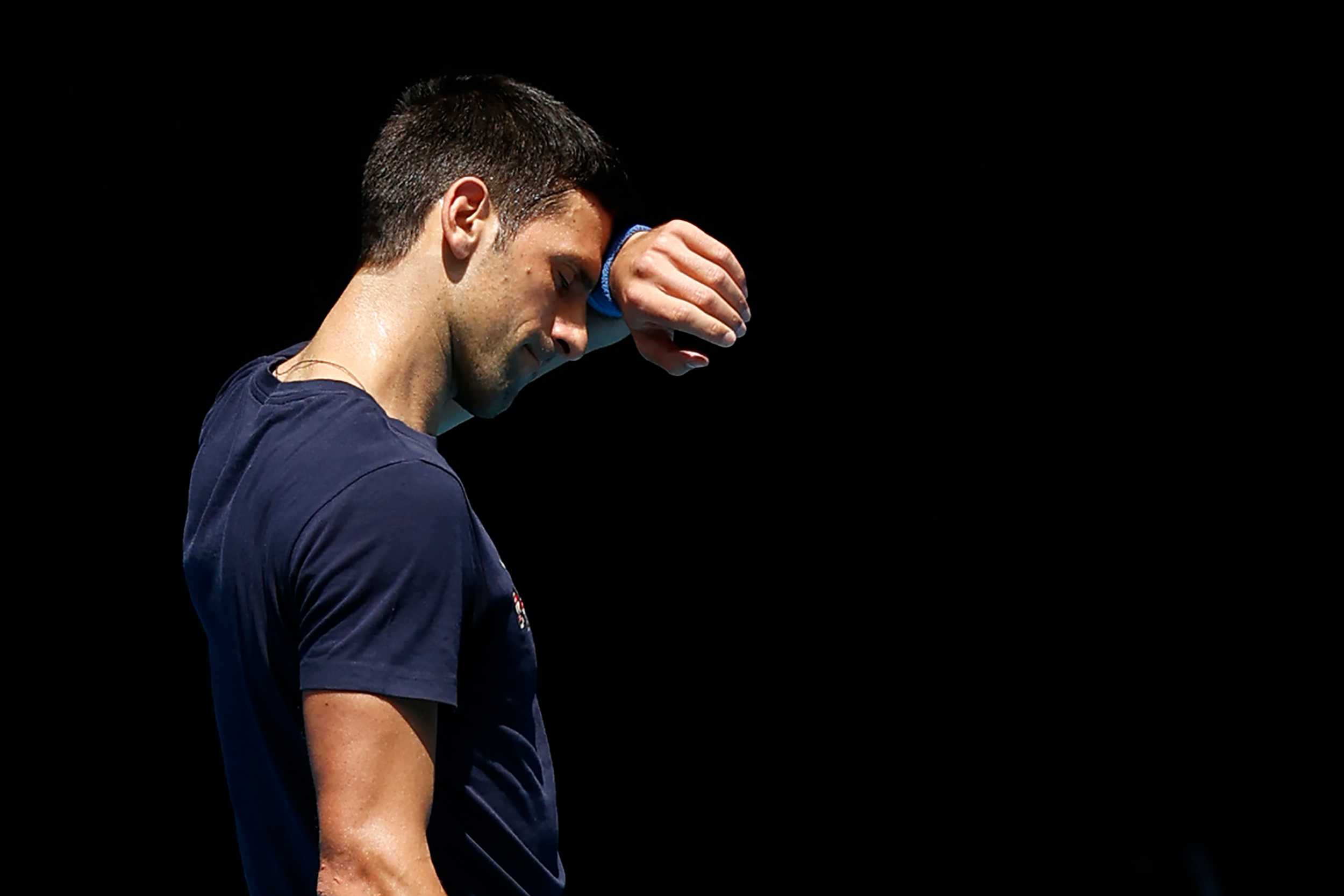
Novak Djokovic's Australia visa was today canceled for a second time — throwing his participation in the Australian Open into question once more and potentially sparking another legal standoff.
Here's what this means and what could happen next, according to legal experts.
Could Djokovic appeal again? Yes — the tennis star could request a temporary injunction from the judge, said Justin Quill, a partner with an Australian law firm in Melbourne. During that extra time, he could stay in the country and appeal the decision.
But "you can't just appeal because you want to appeal," Quill added — Djokovic would have to show the judge he has valid grounds to protest the decision.
Can Djokovic play in the tournament during legal proceedings? It's not clear yet — the Australian Open starts Monday, with Djokovic drawn against fellow Serb Miomir Kecmanovic in a first round match that now seems in doubt.
What options does Djokovic have? Maria Jockel, an immigration law specialist at BDO Australia, told CNN Djokovic's lawyers now have 28 days to make representations to the immigration minister, who could then choose to reinstate the visa.
During that time, Djokovic might be placed in detention again — unless the minister grants him a bridging visa, which could allow him to play in the Open while waiting for the decision or making arrangements to leave Australia, Jockel said.
Djokovic's lawyers could also go to court — but they would face a difficult legal battle, especially given his admission earlier this week that false information was included on his travel declaration, Jockel said.
The declaration stated he had not traveled in the 14 days prior to arriving in Melbourne — but photos taken during that period appear to show him in both Spain and Serbia.
In a statement on Wednesday, Djokovic called it a "human error."
READ: The immigration minister's full statement on revoking Djokovic's visa
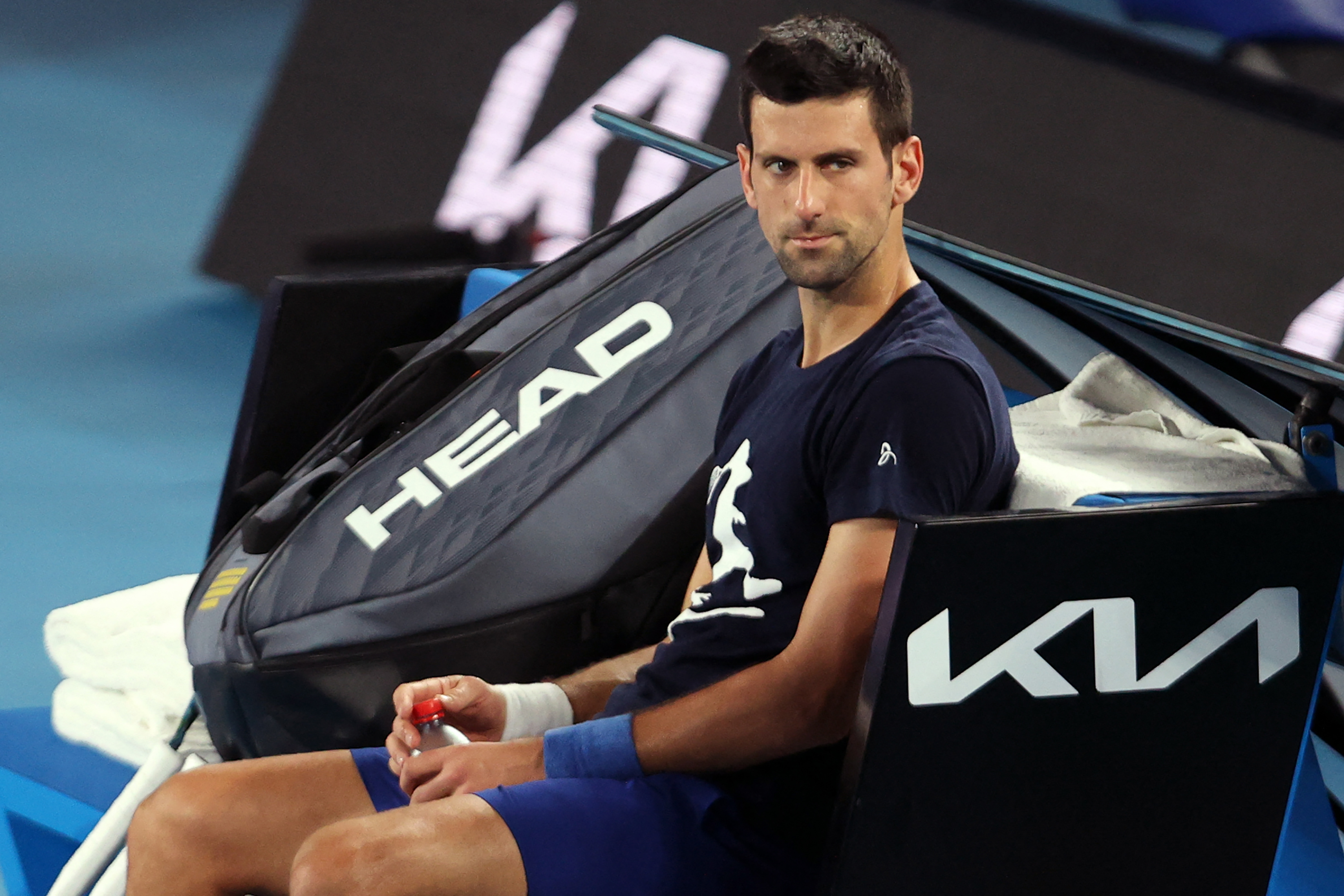
Australian Immigration Minister Alex Hawke said in a statement Friday he would use his personal power to revoke Novak Djokovic's visa for a second time.
Read the full statement:
"Today I exercised my power under section 133C(3) of the Migration Act to cancel the visa held by Mr Novak Djokovic on health and good order grounds, on the basis that it was in the public interest to do so.
"This decision followed orders by the Federal Circuit and Family Court on 10 January 2022, quashing a prior cancellation decision on procedural fairness grounds.
"In making this decision, I carefully considered information provided to me by the Department of Home Affairs, the Australian Border Force and Mr Djokovic.
"The Morrison Government is firmly committed to protecting Australia’s borders, particularly in relation to the COVID-19 pandemic.
"I thank the officers of the Department of Home Affairs and the Australian Border Force who work every day to serve Australia’s interests in increasingly challenging operational environments."
The immigration minister has broad powers to cancel visas — and if the visa is successfully revoked, barring an appeal, Djokovic could be banned from Australia for up to three years.
Australian immigration minister says he canceled Djokovic's visa "in the public interest"
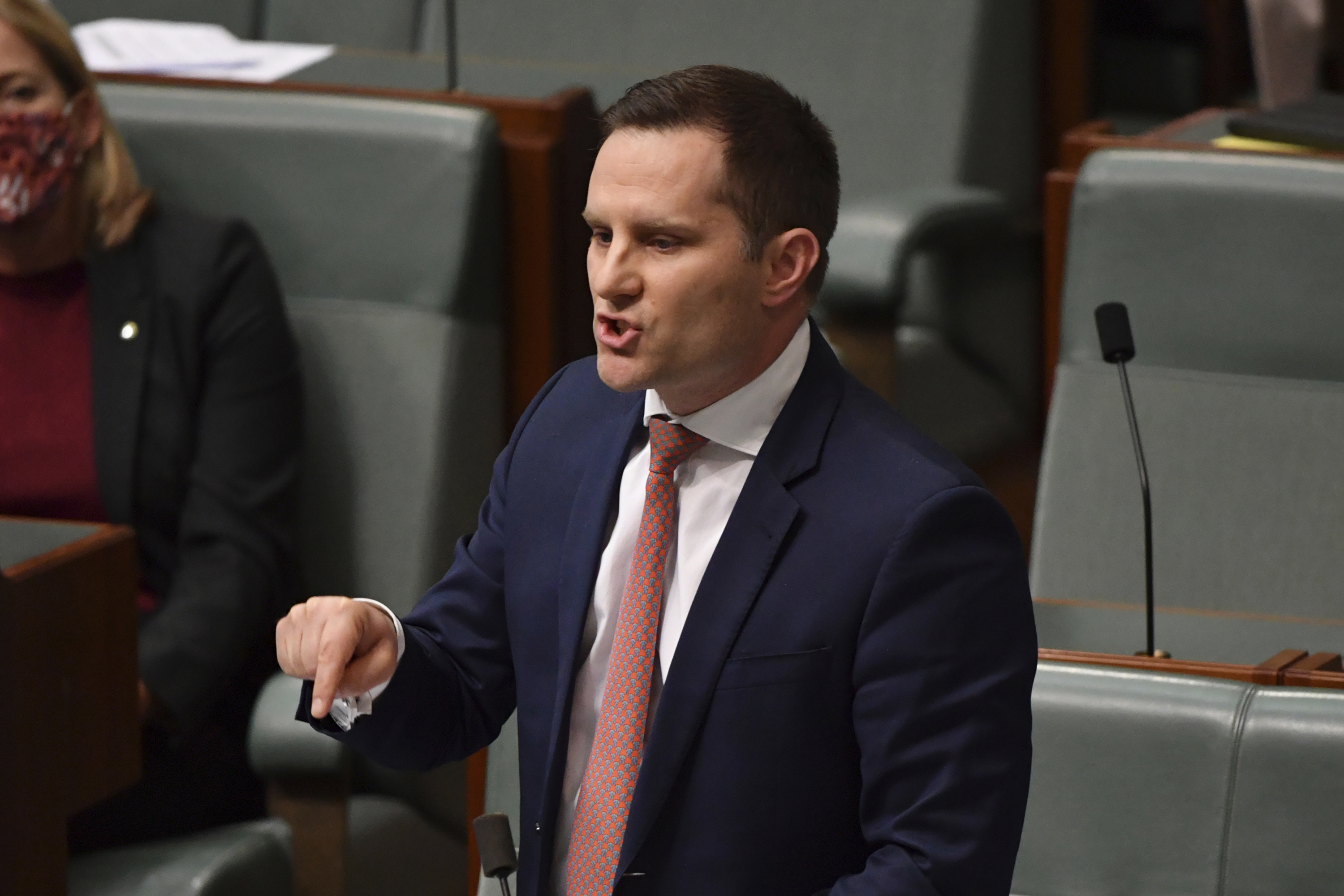
Australia’s Minister for Immigration Alex Hawke has canceled Novak Djokovic's visa, he confirmed in a statement Friday.
“Today I exercised my power under section 133C(3) of the Migration Act to cancel the visa held by Mr Novak Djokovic on health and good order grounds, on the basis that it was in the public interest to do so,” the statement from Hawke said.
“This decision followed orders by the Federal Circuit and Family Court on 10 January 2022, quashing a prior cancellation decision on procedural fairness grounds. In making this decision, I carefully considered information provided to me by the Department of Home Affairs, the Australian Border Force and Mr Djokovic,” it continued.
Hawke went on to reiterate the Australian government’s firm commitment to protecting borders, “particularly in relation to the COVID-19 pandemic.” Section 133C(3) of the Migration Act grants the Immigration Minister personal powers under which they can cancel visas.
The grounds under which a visa may be canceled are laid out in section 116 of the Migration Act. Section 116(1)(e) of the act states that visa cancellation can occur if “the Minister is satisfied that it would be in the public interest to cancel the visa.”
BREAKING: Djokovic's visa has been revoked again
Novak Djokovic's Australian visa has been revoked for a second time, all but ending the ambitions of the world's No.1 men's tennis player to contest the Australian Open and win a record 21st grand slam.
It is unclear whether Australia will move to deport the Serbian star as the decision can still be challenged by his legal team.
Key things to know about the Djokovic visa row
Though Novak Djokovic's visa was reinstated on Monday and he was released from detention, Australia's Immigration Minister Alex Hawke could still revoke his visa again and begin deportation proceedings.
As he awaits a decision on whether he can remain in Australia, Djokovic on Thursday was drawn against fellow Serb Miomir Kecmanovic in the first round of the Australian Open.
Why Djokovic was detained: All international arrivals to Australia are required to be vaccinated against Covid-19 — which Djokovic is not — unless they have a medical exemption. The government argued he didn't have a valid exemption to the requirement.
Djokovic said he was under the impression he could enter because tournament organizers had granted him a medical exemption on the grounds he had been infected with Covid-19 in December, his visa had been approved ahead of arrival, and he had been cleared for quarantine-free travel.
Why the judge ruled in his favor: The government hadn't given Djokovic enough advance notice about the cancellation of his visa or time to prepare materials in his defense, the judge said. After his arrival, Djokovic was told he would have a few hours to prepare — but the government decided to cancel his visa before the deadline they had given.
When: Djokovic tested positive in mid-December and recovered enough to receive a medical exemption from Tennis Australia on Dec. 30, according to court documents. He arrived in Australia on Jan. 5 and was promptly placed in detention. He was released on Monday, Jan. 10. The tournament runs from Jan. 17-30.
What happens now?: Australia's immigration minister could still revoke Djokovic's visa again and begin deportation proceedings. But it is unclear when such a decision could come. Australian Prime Minister Scott Morrison batted away a question from a reporter about Novak Djokovic's visa status at a news conference in Canberra on Thursday.
Morrison was asked why a decision hadn't been made yet on whether the Australian government would revoke Djokovic's reinstated visa.
"I refer to Mr. Hawke's most recent statement and that position hasn't changed," he said, referring to the immigration minister, who could still decide to deport Djokovic. "These are personal ministerial powers able to be administered by Minister Hawke, and I don't propose to make any further comment at this time."
Novak Djokovic drawn against Miomir Kecmanovic at Australian Open
It’s over 15,000 kilometers (9,320 miles) from Belgrade to Melbourne. Novak Djokovic’s journey to the Australian Open has been certainly quite something.
And in Thursday’s draw for the Australian Open, he discovered he will be up against fellow Serb Miomir Kecmanovic.
Djokovic, looking to win his 10th Australian Open title in Melbourne this month, is waiting for Australia's immigration minister Alex Hawke to decide whether to revoke his reinstated visa ahead of the tournament.
But what about the tournament's other players?
- Rafael Nadal, who is tied with Djokovic and Roger Federer on 20 grand slam singles titles, is seeded sixth and scheduled to face American Marcos Giron in the first round.
- No. 2 seed Daniiel Medvedev, last year's US Open champion, faces Henri Laaksonen in the first round, while No. 3 seed Alexander Zverev faces fellow German Daniel Altmaier.
- In the women's singles draw, there is a potential fourth-round matchup between world No. 1 Ashleigh Barty and defending champion Naomi Osaka.
- Osaka, seeded 13th, will begin her title defense against Camila Osorio, while Barty's first-round opponent will be a qualifier.
- Other grand slam champions in this year's draw include Iga Swiatek, Garbine Muguruza and Simona Halep. Emma Raducanu and Sloane Stephens, US Open winners from 2021 and 2017 respectively, have been drawn against each other in the first round.
Read the full story:
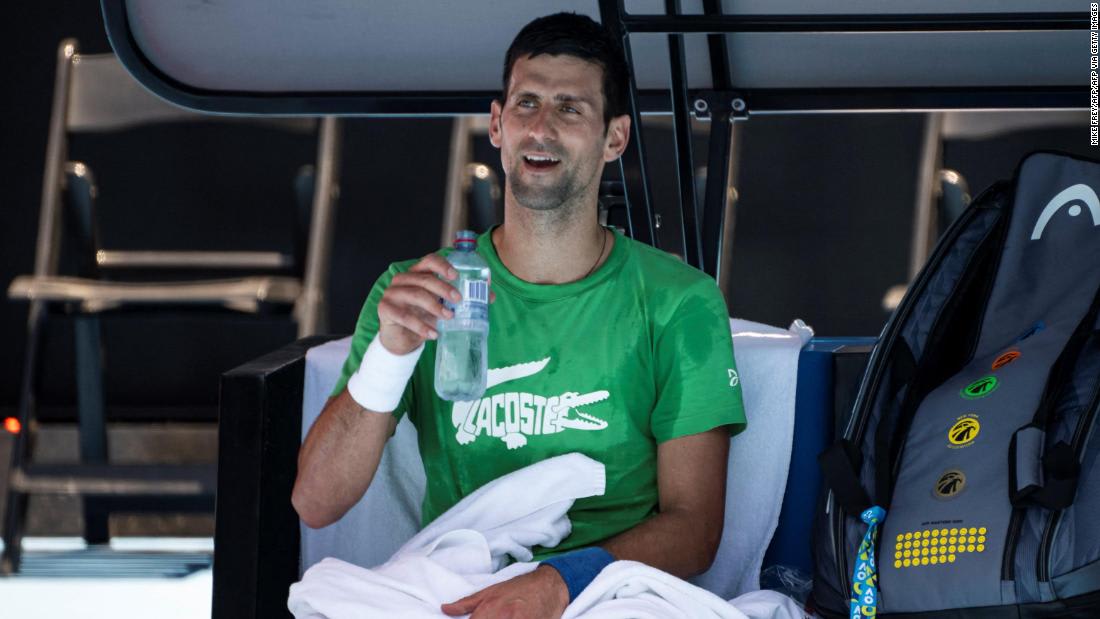
A timeline of Novak Djokovic's Australia visa saga
Novak Djokovic's Australian Open participation has provided a tumultuous backdrop to the tournament. The Serbian world No. 1 was detained in Australia last week over a visa and vaccination dispute, and on Tuesday released a lengthy statement addressing his movements in December 2020.
Here is a timeline of some key events:
Jan. 1
- Djokovic's team submits his travel declaration to the Australian Ministry of Home Affairs, which notifies them that it has been assessed and he is cleared for quarantine-free arrival, according to the affidavit.
Jan. 2
- According to his affidavit, Djokovic receives a Border Travel Permit by the state government of Victoria, where Australian Open host city Melbourne is located.
Jan. 5
- Having left Spain the day before, Djokovic arrives in Melbourne close to midnight. His passport is taken and he is escorted to a small room where he is interviewed by border control officers, according to the affidavit.
Jan. 6
- Djokovic's visa is canceled by the Australian government and he is taken to a temporary detention facility at the Park Hotel in Melbourne, according to the affidavit.
- In a news conference, Prime Minister Scott Morrison confirms and reads out the letter sent on Nov. 29 from Health Minister Greg Hunt to Tennis Australia stating that a Covid-19 infection alone in the past six months does not meet the requirements for quarantine-free entry.
Jan. 10
- At a hearing, a judge quashes the cancellation of Djokovic's visa and orders his release from detention. But the judge says Australian Immigration Minister Alex Hawke reserves the right to deport Djokovic.
Jan. 11
- The Australian Border Force (ABF) is investigating whether Djokovic submitted a false travel declaration ahead of arrival in Australia.
Jan. 12
- Djokovic says his team has provided additional information to the Australian government to clarify the issue of his travel declaration.
- However, Australian Border Force (ABF) officials are investigating possible inconsistencies in documents related to Djokovic's December PCR result as well as the tennis player's movements in the days after he tested positive for Covid-19 in Serbia, a source with knowledge of the investigation told CNN.

 Landwebs
Landwebs 







